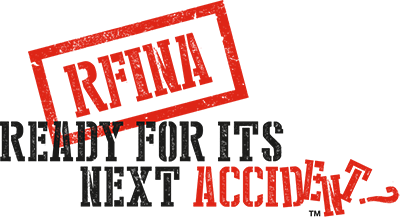Qualification And Certification
Until around early 2019 the collision repair industry did not have a very clear vision of Certification and worked on the assumption that Certified meant Qualified and that Uncertified meant Unqualified.
The two quite different things of Qualification and Certification had been mixed into the same category.
What is Qualification?
Qualification is based on the capabilities of a repair facility, its equipment and people. A qualified facility has the right current equipment, the right current training and the right systems in place. Qualification in itself does not have to be conferred by an outside party. An outside party however is needed, because, to protect consumers, there does need to be verification of that qualification.
Qualification should be verified by a “disinterested party.” Disinterested does not mean uninterested or uncaring. It means that the party has no stake in the outcome. The outcome will be fair, but the granting authority has no financial or competitive stake in the granting, or not, of the qualification.
A good example can be found in electrical services. A very important difference between electrical work and collision repair is that all commercial electrical work requires technician licensing. A company cannot present themselves as Electrical Contractors without having government licensed electricians on staff. The designation or license for the contractor is provided by a “disinterested” government agency. There is not a lot of confusion among consumers about the legitimacy of the contractor’s work as he has been licensed by the only authority allowed to provide that license.
“…there is nothing in that certification that diminishes or takes away from the electrician who has chosen not to join the Eaton network.”
Private companies can then choose to certify any of these licensed electrical contractors to work with their products. Staying with electrical—as an example Eaton has an Eaton Certified Contractor Network. Eaton has not issued licenses that are an alternative to mandatory government licensing but has selected companies and individuals from within the existing licensed pool. This inclusion in the network will likely imply that these electricians may be more efficient with Eaton products, or it may be more of a marketing or administrative function. The electrician with Eaton certification may have technical, or marketing, or administrative advantages, but there is nothing in that certification that diminishes or takes away from the electrician who has chosen not to join the Eaton network.
In Canada, this is where the Canadian Collision Industry Accreditation Program (CCIAP) could serve the same purpose as government licensing. The program is administered by the Automotive Industries Association of Canada (AIA), but the AIA does not profit by more or fewer shops, it has no stake in where those shops are, and it has no business affiliation with qualified shops. A consumer will know that a CCIAP facility is operating within industry standards, with current equipment, well trained staff and a proper business structure.
What is Certification?
Certification by OEMs or insurance companies is a different thing entirely; the basis for certification by an OEM has a tremendous amount of marketing included and there are a range of financial interests in that certification.
Vehicle owners are bombarded with information about the virtues of the OEM Certified or insurer approved facility but are not told what criteria were used for including a facility in the program or leaving it out. For example, a facility cannot be Certified by Toyota without a sponsorship from the dealer in their market area. If that dealer has its own repair faculty, it will not sponsor an outside facility, even if that facility is better qualified.
If insurers and OEM certification programs selected only from the qualified pool of shops in the CCIAP system the consumer would know that these choices have reached a high base level and will be able to do the right repairs. But they will also know that the CCIAP shop without outside OEM or insurer certification will also be able to provide fully capable and professional repair.
